Breast Implant Illness
Breast augmentation with silicone and saline implants is still one of the most common cosmetic and reconstructive surgical procedures performed around the world today. Over the last number of years, gaining more notoriety and traction on the internet and social media over the last decade, there have been a large number of women who have reported a myriad of symptoms which has come to be named “Breast Implant Illness” or BII. Although there are no abnormal physical or laboratory findings, there have been over 100 symptoms reported with self described Breast Implant Illness with the most common symptoms reported including fatigue, muscle pain and weakness, joint pain, brain fog, headaches, depression, memory issues, hair loss, low libido, dry eyes, and anxiety. In review of literature, as well as social media and in seeing women after breast implant surgery for decades, Dr Gershenbaum feels there are simply too many women with similar complaints not to take complaints of BII very seriously. What makes BII more difficult to classify or define is that this myriad of symptoms are commonly found in the general population as well as in multiple other illnesses such as Epstein Barr Virus, chronic fatigue syndrome, fibro myalgia, along with symptoms from many allergies, food and chemical sensitivities. Although the exact cause remains unknown, doctors theorize that in a relatively small subset of women, as compared to the vast numbers of women who have had breast implant surgery, the implants are causing some type of auto immune and/or inflammatory response. As there are no specific diagnostic criteria or test for BII, it becomes a diagnosis of exclusion. A study published in Cureus, Published online 2023 Apr 24, Breast Implant Illness: A Cohort Study concludes BII is a true entity that afflicts an extensive patient base. They noted that patients with autoimmune disease, endocrine disease, anxiety/depression and/or psychiatric disease have a predisposition to more significant disease severity. The plastic surgery community has several studies ongoing to determine the cause, specific diagnostic tests, as well as the most appropriate treatment for Breast Implant Illness.
Treatment Of Breast Implant Illness
Over the last number of years, the standard treatment for Breast Implant Illness has been explantation with capsulectomy, or in layman’s terms removal of the implants and capsules. The exact type of capsule removal is where the large debate lies. Dr Sam Gershenbaum has 30 years of experience in breast augmentation, correcting breast implant problems, removal of implants and capsules. Rest assured that what ever the issue with breast implants or Breast Implant Illness, Dr Gershenbaum will provide the latest information and treatment options and review your options in treatment so you can make the best decisions for you.
Currently, it seems that most people are getting their information and treatment options from social media. Dr Gershenbaum wants you to get your information and review your treatment options based on the latest medical science and true peer reviewed studies so that you can make the best informed decisions. One of the main areas of misunderstanding and controversy deals with the type of capsulectomy with implant removal. Breast Implant Illness social media groups and other surgeons have popularized the term “en bloc” capsulectomy in which they are describing where the implant along with the completely intact capsule around the implant are removed together as one. It should be noted, that the term “en bloc” is being used incorrectly and has become a popular marketing term, as the true definition of “en bloc” refers to surgical treatment of malignancy with a clear margin of normal healthy tissue is removed as well. The only accurate indication for explantation of the implant and capsule together in the true definition of “en bloc” is for treatment of a malignancy of the capsule, which again would include a margin of healthy tissue. So please understand when offered enbloc implant and capsule removal for BII, you are being offered the en vogue social media marketing term for treatment. Dr Gershenbaum agrees that the terminology, to be more correct, should be termed implant removal or explantation with total intact capsulectomy as is stated in the study formentioned. This would also be an appropriate option to remove a ruptured silicone gel implant still contained with in the capsule to prevent leaking of the silicone into the normal tissue space.
It is also important to understand that a total capsulectomy carries greater surgical risks including, hematoma, contour/shape irregularities or deformity and pneumothorax (collapsed lung) if the implant is under the muscle. The reason is that, in some patients, the capsule can be very thin and extremely adherent to the chest wall causing more damage and have higher risks in attempting to remove that posterior capsule. I have personally witnessed the most experienced surgeons (attempting to perform what they call “en bloc” capsulectomy unable to “peel” off or dissect that very adherent posterior capsule in full and simply ablate or cauterize that portion of the capsule. But the big question is, Is that necessary ?
One comprehensive landmark study published in the prestigious Aesthetic Surgery Journal in July 2022, Impact of Capsulectomy Type on Post-Explantation Systemic Symptoms Improvement revealed with a 98% follow up, that 94% of the self reported Breast Implant Illness patients reported at least partial symptom improvement for at least 6 months after implant removal with capsulectomy, regardless of the type of capsulectomy. See the full study below:
View the full journal article
In another retrospective study of 200 patients Published Online 2022 Mar 16, Eplasty 2022;22:e5 Breast Implant Illness: Treatment Using Total Capsulectomy and Implant Removal After bilateral implant removal and capsulectomy, 96% of patients with a presentation of BII reported improved or complete resolution of symptoms. It was very interesting to note that in this study 68.5% (137/200) of patients had at least 1 positive bacterial culture. The most common organisms found were Propionibacterium acnes (49.6%) followed by Staphylococcus epidermidis (26.2%), Propionibacterium granulosum (16.8%) and two positive fungi cultures of Candida albicans (1.5%) and Aspergillus fumigates (1.5%). See the full study in the link below:
View the full study
In review of the current treatment for BII, assuming other causes of the symptoms have been ruled out, in which patients choose to have their implants removed, these are the treatment options. All these treatment option include culture and sensitivity to determine if there are also positive bacterial or fungal cultures to be treated.
- Simple implant removal without capsulectomy. It should be noted that there are certainly numerous reports of patients who’s complaints of BII reported improvement in symptoms with simple implant removal without capsulectomies. It is generally recommended, however, by most plastic surgeons to treat BII with implant removal with capsulectomy.
- Implant removal with partial capsulectomy. This will generally include removing the anterior portion of the capsule and exclude the more adherent posterior portion of the capsule.
- Implant removal with full capsulectomy. This generally will include removal of the implant first and then a full or total capsulectomy. Dr Gershenbaum is one of the few plastic surgeons with 30 years of experience, an expert in all aspects of capsulectomies who is able to perform a full/total capsulectomy through the small inferior areolar incision/scar that the implants were placed. Most surgeons will perform full capsulectomy only through a larger inframammary crease incision.
- Implant removal with total intact capsulectomy commonly, but incorrectly, refered to “en bloc” capsulectomy. This procedure refers to removal of the implant within the intact capsule as one whole unit.
Any of these above 4 procedure choices, depending on the patients exam and expectations, can be performed with a breast lift (mastopexy) and/or fat grafting to enhance the overall contour, size and shape. Dr Sam Gershenbaum has 30 years of experience and is an expert in correcting breast implant problems as well as all aspects of caspsulectomies. In deciding on a treatment plan, Dr Gershenbaum will carefully review your history, your problems and symptoms, the current literature and studies, as well as your expectations to come up with the plan that most fits your needs.


